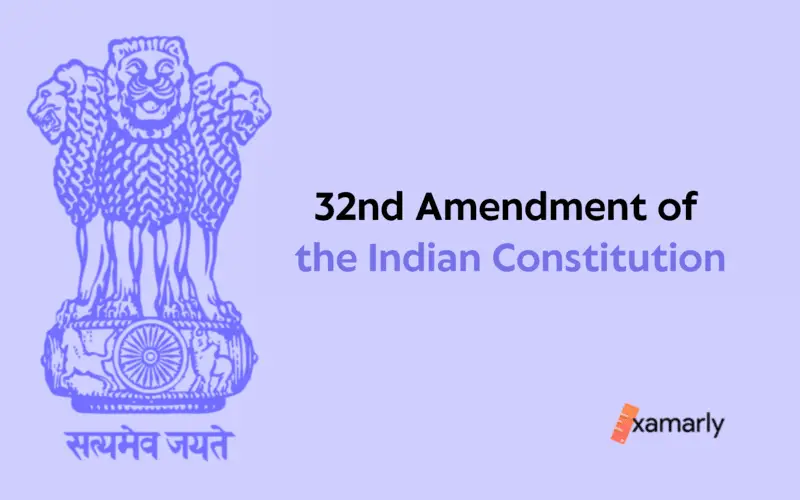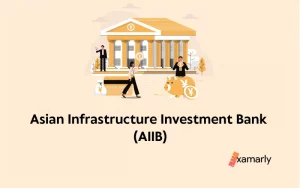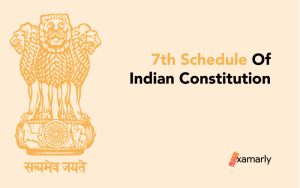The 32nd Amendment of the Indian Constitution is also known as the Constitution (Thirty-second Amendment) Act of 1973.
Special rules for enrollment in educational institutions were included in the amendment. In addition to public employment, particularly in civil services, there is the establishment of an administrative tribunal with the authority to handle disagreements and complaints involving public services.
Continue reading the article on the 32nd amendment of the Indian Constitution. This will help you to learn more about the Indian Constitution.
What Is the 32nd Amendment Of the Indian Constitution?
On 1 July 1974, the 32nd Amendment came into effect. The protection of regional rights in the Andhra Pradesh state’s Telangana and Andhra regions was its primary goal.
With regard to enrollment in educational institutions, public employment, particularly in the civil service, and the establishment of an administrative tribunal with the authority to hear complaints and disputes involving public services, special provisions were included in the amendment.
Article 371 of the Constitution was modified. Articles 371D and 371E were added to the Constitution as part of the 1987 amendments.
The provisions of Article 371D that are specific to the state of Andhra Pradesh are covered. The intention behind the enactment of Article 371E is to make it possible to build a Central University in the Indian state of Andhra Pradesh. Constitution’s Seventh Schedule was also amended.
Statement of Objects and Reasons
The Constitution (Thirty-third Amendment) Bill of 1973, which became the Constitution (Thirty-second Amendment) Act of 1973, had a statement of purposes and justifications attached to it.
In 1956, Andhra Pradesh became a state. Then, certain safeguards were planned for the Telangana region in matters of development.
As well as in the matter of employment opportunities and educational facilities for the locals.
As such, some of these safeguards were meant to be established in accordance with the provisions of paragraph (1) of article 371 of the Constitution.
The Public Employment (Requirement as to Residence) Act was passed in 1957. Its primary goal was to provide employment opportunities for Telangana residents.
The relevant provision of the act, but, was declared to be unconstitutional insofar by the Supreme Court in 1969.
Considering that it applied to the protections intended for the Telangana region. The effectiveness of the safeguards led to some dissatisfaction for several reasons.
From time to time, solutions to the issues were developed. Recently, Andhra Pradesh leaders worked cooperatively to identify the causes of the dissatisfaction.
Additionally, to come up with long-lasting solutions to the issues to help the Andhra Pradesh people fully integrate emotionally. On September 21st, 1973, they proposed a set of measures that came to be known as the “Six-Point Formula.”
This suggests a consistent strategy for encouraging the State’s disadvantaged regions to develop quickly.
This was done to ensure the balanced development of the State as a whole and to provide equal opportunities for different regions of the State in terms of employment, career prospects, and education in public services.
In Andhra Pradesh, this formula enjoys widespread support. Additionally has been endorsed by the State Government.
The purpose of this Bill is to establish the constitutional authority required to give effect to the Six-Point Formula insofar as it relates to the creation of equal opportunities for residents of different areas of the State when it comes to admission to educational institutions and public employment, as well as the establishment of an Administrative Tribunal with the authority to resolve specific disputes and grievances on public services.
The bill includes provisions that are incidental and consequential in nature, like the provision for the approval of some prior appointments.
It also seeks to provide Parliament with the authority to approve laws creating the Central University in the State.
The Bill also provides for the repeal of clause (1) of article 371 of the Constitution, which is eliminated by the Six-Point Formula.
See Also – 33rd Amendment of the Indian Constitution
Important Provisions of 32nd Amendment 1973
Amendment of article 371-Article 371 of the Constitution’s clause (1) shall be omitted. The words “Andhra Pradesh” in the article’s marginal heading should be removed.
Insertion of new articles 371D and 371E-Section 3 inserts new articles 371D and 371E. The new article 371D contains special provisions with respect to the state of Andhra Pradesh.
(1) Under this article, the President may, by order, provide having regard to the requirements of the State as whole, equitable opportunities and facilities for the people belonging to different parts of the State, in the matter of public employment and in the matter of education, and different provisions may be made for various parts of the State.
(2)In particular, an order under paragraph (1) may –
(a)demand that the State Government organize any class or classes of civil service positions under the State into various local cadres for various parts of the State and assign the individuals holding such positions to the local cadres in accordance with any principles and procedures that may be specified in the order;
(b)Identify the State’s part or parts that will be considered the local area-
(I)for direct hiring into any position in a local cadre of the State Government
(II) by direct recruitment for vacant vacancies in any State or local government cadre; and
(III)for the purposes of admission to any state-owned university or any other educational facility under the control of the state government;
(c) specify the conditions subject to which preference or reservation will be given or made. The extent to which these factors will be taken into account will also be mentioned.
(I)regarding direct recruitment to posts in any cadre mentioned in clause (b), as may be specified in the order in this regard;
(II) In the case of candidates who have lived or studied for any period of time specified in the order in the local area in respect to such cadre, University, or other educational institution, as the case may be, they may be admitted to or in favour of any such University or other educational institution referred to in subclause (b), as may be specified in this regard in the order. (I) In the case of candidates who have lived or studied for any period of time specified in the order in respect to such cadre, University, This rule is only applicable to the applicants if they have either lived or studied in the local region in relation to the cadre, university, or other educational institution that is being considered, as
(3)The Constitution (Thirty-second Amendment) Act of 1973 allowed courts (other than the Supreme Court) and tribunals and other authorities to exercise certain jurisdictions, powers, and authorities, which the President may specify in an order with respect to the formation of an administrative tribunal for the state of Andhra Pradesh.
(a)allotment, appointment, or promotion to the class or classes of posts in any State civil service, the class or classes of State civil posts, or the class or classes of posts controlled by any State local authority, as the order may specify;
(b) the seniority of persons appointed, allotted, or promoted to any class or classes of posts in any State civil service, any class or classes of State civil posts, any class or classes of State civil posts, or any class or classes of State posts controlled by local authorities within the State
(c) The order may specify further employment conditions for people appointed, assigned, or promoted to such class or classes of positions in any State civil service, State civil posts, or State local authority posts.
(4) According to the provisions of article (3), an order may:
(a)appoint the Administrative Tribunal to hear complaints regarding any matter falling under its scope, as the President may specify in the order, and to issue any orders the Administrative Tribunal sees fit;
(b) contain any provisions for the Administrative Tribunal’s authority, authority, and procedure that the President deems necessary, including any provisions for the Administrative Tribunal’s authority to punish for contempt of itself;
(c) provide for the transfer of such classes of proceedings, which are proceedings relating to matters within its jurisdiction and pending before any court (other than the Supreme Court), tribunal, or other authority immediately prior to the beginning of such order, as may be specified in the order;
(d) include such other, incidental, and consequential provisions as the President may deem appropriate. These include clauses that deal with costs, restrictions, proof, or the application of any currently in force law with any necessary modifications or exceptions.
(5) When the State Government confirms the Administrative Tribunal’s final decision in a case, or three months have passed since the date the decision was made, whichever comes first, the decision becomes effective:
With the proviso that any judgment or decision of the Administrative Tribunal may be modified or revoked by special order of the State Government made in writing and for reasons that shall therein be detailed. In this situation, the Administrative Tribunal’s order will only be effective in this amended form, if applicable, or it will have no effect at all.
(6) (6) The State Legislature’s two houses must be consulted as soon as possible after the State Government issues a special order under the proviso to clause (5).
(7) The Administrative Tribunal is not subject to the High Court for the State’s supervision. Additionally, no court (aside from the Supreme Court) or tribunal may exercise any jurisdiction over any matter subject to the jurisdiction, authority, or relationship of the Administrative Tribunal.
(8) The Administrative Tribunal may be dissolved by order of the President if the President is of the opinion that its continued existence is not required. Additionally, he has the authority to make any arrangements he sees fit for the transfer and resolution of cases that are currently pending before the Tribunal prior to its abolition.
(9) Irrespective of any judgement, decision, or order handed down by a court, tribunal, or any other body,
(a) no transfer, promotion, posting, or appointment of any individual
(I)no transfer, promotion, posting, or appointment of any individual
(II) made to any position within the Government of, or any local or other authority within, the State of Andhra Pradesh prior to the effective date of the Constitution (Thirty-second Amendment) Act, 1973; and
(b) No action or thing done by or before any person mentioned in subclause (a) shall be deemed to be illegal or void or to have ever become unlawful or void merely because the appointment, posting, promotion, or transfer of such person was not made in accordance with any law, then in force, providing for any requirement as to residence within the State of Hyderabad or, as the case may be, within any part of the State of Andhra Pradesh, in respect of such person.
(10) No matter what is stated in any other clause of the Constitution or in any other currently in effect law, the provisions of this article and any orders issued by the President in accordance with it will be put into effect.
Parliament has been given the authority to create a Central University in the state of Andhra Pradesh by the addition of article 371E.
“Delhi University; the University created in compliance to article 371E;” shall replace “Delhi University, and” in the Seventh Schedule to the Constitution (List 1 entry 73).
Conclusion
The 32nd Amendment went into effect on July 1st, 1974. Article 371 of the Constitution underwent modification.
Articles 371D and 371E of the Constitution were added by this amendment. Additionally, the Constitution’s Seventh Schedule was modified.
Its main aim was to safeguard regional rights in the Telangana and Andhra regions of the Andhra Pradesh state.
What is the 32nd amendment of the Indian Constitution all about?
Special rules for enrollment in educational institutions were included in the amendment. In addition to public employment, particularly in civil services, there is the establishment of an administrative tribunal with the authority to handle disagreements and complaints involving public services.
Which Article is focused on the 32nd amendment of the Indian Constitution?
An amendment to article 371 of the Constitution was made. It inserted articles 371D and 371E into the constitution. Article 371D deals with Special provisions with respect to the state of Andhra Pradesh and article 371E deals with the Establishment of a Central University in Andhra Pradesh.
Which state was in focus in the context of the 32nd amendment of the Indian Constitution?
Andhra Pradesh is in the focus as the city of Andhra Pradesh that is Telangana got some secure policies established in the terms of development.






